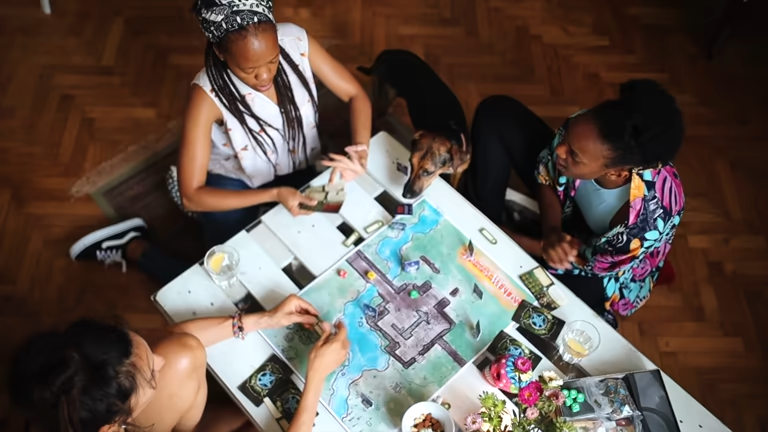
In today's fast-paced world, effective team building is more crucial than ever. While traditional team-building exercises like trust falls or icebreakers can be fun, they don’t always foster deep collaboration or allow individuals to fully explore their strengths and weaknesses. This is where roleplaying games (RPGs) come in. RPGs offer a unique environment that encourages teamwork, strategic thinking, and problem-solving—skills that are essential in any collaborative setting. At Arcane Ventures, we believe that RPGs provide the perfect platform for team building, blending creativity with real-world skills in a way that no other activity can.

One of the primary ways RPGs foster team building is through the need for collaboration. Unlike many other activities, RPGs require players to work together to achieve a common goal. Whether it’s solving a puzzle, battling enemies, or navigating a complex moral dilemma, every challenge within an RPG demands collective effort. Each player contributes their unique skills and abilities, whether they’re a master strategist, a charismatic negotiator, or a tactical warrior. The success of the group relies on how well the team can coordinate, communicate, and support each other.
RPGs also encourage clear communication—a cornerstone of any successful team. As players assume the roles of different characters, they must articulate their actions, decisions, and intentions clearly to others. This fosters an environment of open dialogue and collaboration, where players are encouraged to actively listen and respond. In an RPG, the stakes are higher than just winning or losing; the success of the entire team depends on how well everyone can communicate and work together. These improved communication skills can translate directly into real-world professional settings, where effective communication is often the key to success.
Another significant benefit of RPGs for team building is that they encourage creative problem-solving. In any given session, players may face unexpected challenges that require them to think outside the box. These challenges often don’t have a single, clear solution, requiring players to brainstorm, debate, and collaborate on the best course of action. This aspect of roleplaying helps teams practice collective brainstorming and creativity, which can lead to innovative solutions both in-game and in the workplace. Players quickly learn to evaluate multiple perspectives and come to a consensus, skills that are vital when working with others on complex projects.
RPGs also provide a safe space for teams to test out new ideas and strategies without the pressure of real-world consequences. In a low-stakes environment, players can experiment with new leadership styles, decision-making processes, and ways of collaborating, which can boost their confidence in these skills. The game world offers a unique opportunity for trial and error, allowing teams to adapt and refine their approaches in real-time. This freedom to experiment and learn from mistakes is invaluable in building trust and improving team dynamics.
The shared experiences in an RPG further strengthen the bond between team members. In a typical RPG session, players will go through highs and lows—victories, defeats, plot twists, and moments of intense cooperation. These shared experiences create lasting memories and inside jokes, fostering a sense of camaraderie. In a professional setting, this bond can translate into stronger working relationships, as employees who share memorable experiences are more likely to trust and support one another.